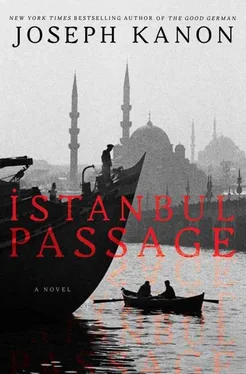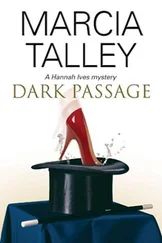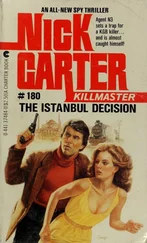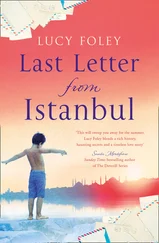“Maybe he isn’t worth as much as we thought.”
Melnikov looked at him for a moment, calculating again, then started walking, almost at the square now, the scraping sound of a tram being turned around.
“You don’t know how to talk to him,” he said flatly.
“But you do.”
“Yes. He’ll talk to us.”
Leon looked at the square, sunny, a break in the clouds, and felt the chill of a dripping basement. There’d be screams. Everybody screamed finally. Everybody talked.
People were pouring out of the funicular station.
“Just in time,” Melnikov said.
“Where are you going? We need to-”
“Have you noticed? People always take it coming up. A jeton ? A small price, to avoid the hill. But down? So mostly empty. Private.”
The few people boarding were heading to the front car to be off first.
“You see?” Melnikov said, getting into the last car. “No one. A good place to talk. No ears.”
Except the man who just then got in, standing by the window until he caught Melnikov’s eye and backed out again, going to the next car, an almost slapstick retreat. One of Melnikov’s own, too eager, or just somebody off the street? The buzzer rang, doors sliding shut, and they started down through the tunnel, old concrete and bare bulbs, what the way to Melnikov’s basement might look like. Just the two of them.
“Now it’s safe,” Melnikov said. “How many men will you bring?”
All business, negotiating a contract, as if they were in one of the banks on Voyvoda Caddesi at the foot of the hill. Guarantees. Procedures. Handing over someone to be killed. Meeting the funicular cars going up, at the halfway point, then swallowed up again by the narrow passage, Melnikov’s eyes never leaving him, someone who’d killed his own men. Means to an end. But what was the end now?
At the bottom, he stopped himself from rushing out, waiting for the doors to slide all the way open.
“Six o’clock then,” Melnikov said.
And it was done, over, the claustrophobic ride, Melnikov’s eyes. They crossed Tersane, dodging cars, suddenly back in real life, everything opening up before him, the smells of the Karaköy market, the amateur fishermen dangling poles off the bridge, trams and cars and peddlers and the minarets beyond, the scene he’d known a thousand times before, but bathed in an unnatural light now, the city wonderful again because it was done.
“You have not said where,” Melnikov said.
“You pick.”
Melnikov spread his hand, turning the choice back to Leon. “Somewhere with people,” he said.
Leon flipped through mental postcards. Not Haghia Sophia, gloom and frescoes. Taksim, cars waiting close by? A tram was coming across from Eminönü, another from this side, like seconds marking out paces, crowds streaming by, oblivious. He stopped, almost laughing at the obvious.
“Here,” he said, pointing. “Galata Bridge.”

They left early, Alexei in a life vest this time.
“More boats,” he said, but not the creaky fishing trawler, one of Lily’s motorboats, sleek with wood trim.
“I hope you’re not afraid of flying too,” Altan said.
The story was a drive to the airport, army transport out, what should have happened days ago.
“Then why the boat?”
“The airport’s on the European side,” Leon said. “We can’t risk the car ferry. They watch it.” Keeping him safe. “Relax.”
Alexei made a resigned grimace, the boat slapping hard against whitecaps, pitching up and down.
After they passed the Dolmabahçe Mosque, Leon looked up the hill, trying to find his window. There’d be mail waiting, curious Mr. Cicek, wondering what the police had wanted. Alexei was taking everything in, his first real look at the city, spilling over its hills in the weak afternoon light. Leon checked his watch. Almost dark, but at this time of year a lingering dusk, light enough for Melnikov to see them on the bridge.
They swung into the Golden Horn, then idled just far enough away from the bridge to keep it in sight, the cranes and drydocks of the shipyards ahead.
“They won’t expect us to come down the Horn,” Altan said, indicating the factories and oily water farther along. He was scanning the bridge through binoculars.
“Who?” Alexei said. “The Americans?”
“No,” Altan said, catching himself. “Anybody. Force of habit.” So feeble that it passed as an excuse.
“There’s no one on the bridge now,” Alexei said, not meaning the crowds.
“How do you know?”
“I looked. When we passed under. You don’t need those if you know how to look. They say a lion can sit, looking at grass, and then for one second something’s not right, a movement, one second, and he knows.”
Altan made a face. “Aslan,” he said wryly. Lion.
Leon looked at the bridge. Could anyone really see that way? A second’s movement in a place perpetually in motion? The iron arches, the pontoons at their feet, people crowding onto the jetties from the ferries, the lower level of fish restaurants and stalls, trams sliding overhead, the sprawling market-all the same to him, nothing out of place. How much longer now? He turned and gazed toward the docks, trying not to look at Alexei. Around the curve was Kasim Paşa and then the yards where the Victorei had waited in quarantine.
“Any news of the ship?” he asked Altan.
It took Altan a minute. “Oh, the Jews. No. How would I hear? We don’t follow them to Palestine.”
“I’d like to know,” Leon said, a request.
“You know it was said there was typhus?”
Leon nodded. “A miracle recovery. It cost ten thousand dollars. Turkish medicine.”
Altan stared at him, more embarrassed than offended.
“How many? On the ship,” Alexei asked.
“Four hundred,” Leon said. “A few more.”
“You saved four hundred Jews,” Altan said to Alexei, an ironic taunting in his voice.
“And I only owed you one life,” Alexei said to Leon.
“You don’t owe me anything,” Leon said quickly.
Alexei put his hand to his chest, an abbreviated salaam. “Bereket versin.”
“You know Turkish?” Altan said, surprised.
“A few words. You pick things up.” He looked at Altan. “Aslan.”
Altan turned back to the bridge.
“Why are we here?” Alexei said to Leon. “What happens now?”
“It’s not time yet. There’ll be a car,” Leon said, nodding to the Eminönü side. Where Melnikov must be waiting, in the big square filled with buses and stalls frying mackerel from the boats tied up alongside. “I’ll walk you over. And then we’re done.”
Alexei kept looking at him, not saying anything.
“Nothing to it,” Leon said, uneasy.
“Then why did you bring a gun?” Alexei said, looking to Leon’s pocket.
“In case,” Leon said vaguely.
“In case I run?” Alexei said. “So careful, the Americans. Where would I go? In Washington let’s hope they’re not so careful. A long job, if they don’t believe me.”
“Skip the Soviets’ man there, then,” Leon said, trying it. “If you want to build some trust. Or was he just for me? Keep me interested.”
Alexei turned to the bridge, not answering.
“In high places,” Leon said. “The one nobody knows. Who isn’t there. Is he?”
Alexei was quiet for a moment. “He must be,” he said finally, “don’t you think? Someone must be. A safe move.” He turned back to Leon. “To keep me valuable, that’s all.”
He pulled up the collar of his jacket, hunkering down. “What does he think he’ll find?” he said, looking at Altan in the front of the boat, still scanning the bridge.
Читать дальше













